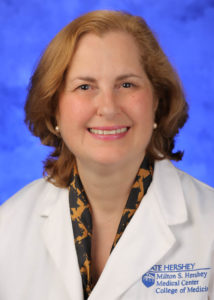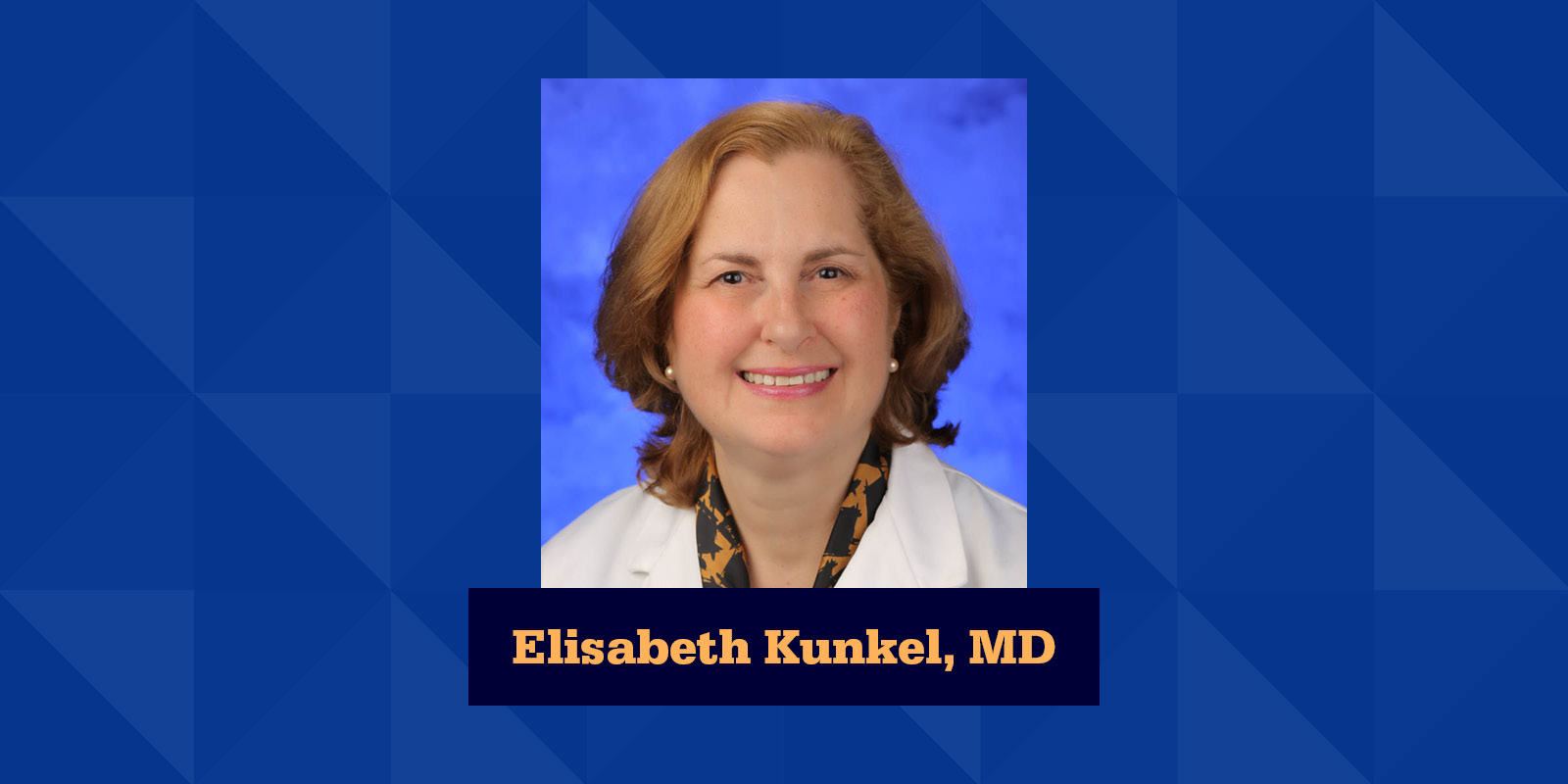
By Elisabeth Kunkel, MD
Chief Medical Officer
Pennsylvania Psychiatric Institute
Covid Impact on Providers
One thing is for certain: Covid has made life harder for everyone, and the providers and staff at Pennsylvania Psychiatric Institute (PPI) are no exception. What started out as figuring out new protocols with PPE supply shortages soon turned into problems with staffing and burnout.
PPE: Staff and Patient Safety
When the pandemic first started, getting enough masks, gloves and gowns were a problem. N95 masks were in short supply in 2020 and although regular surgical masks and face shields were supported as a safe alternative by the CDC, some providers felt they were not “safe enough”. There were a lot of unknowns about the new virus and the medical staff was justified with their concerns. In the beginning, institutions needed to ration PPE starting with procedures that posed the highest risk. “Because of the aerosolized nature of the ECT procedure, we were accessible to obtain enough PPE, including N95 masks, so that all ECT staff were protected” explains Elisabeth Kunkel, MD, Chief Medical Officer at PPI. “It wasn’t until much further into the pandemic before we got enough PPE. We limited PPE use to contact with Covid patients and staff who interacted with such patients.” N95 mask shortages caused PPI to get resourceful. Now in 2022, they are investigating various KN95 masks for use with patients who are not known to have covid. Staff feel reassured regarding their own exposure risk when using the KN95s with patients who have an unknown Covid status.
Not only was PPE used to keep staff safe, but patients as well. “Patients would come in with ineffective cloth masks, so in 2022, we started providing them with surgical masks. Outpatients can interact with our staff from 30 to 60 minutes at a time, so protecting everyone was the main goal. Sometimes it’s difficult to keep masks on patients due to the nature of their mental illness, especially for acutely ill inpatients or distraught outpatients, so all PPI staff are required to wear masks.”
Mask use was not foreign to PPI staff as those who could not get the flu-shot were accustomed to wearing masks pre-pandemic. However, there was a big culture shift that happened with Covid. To enter the facility, everyone had to be Covid negative – but this wasn’t a definite solution.
“There were a few cases where patients developed Covid within the facility” notes Dr. Kunkel. “Our first option when this happens is to send the patient who is Covid positive home to quarantine, however, as a psychiatric facility, sometimes inpatients are not well enough to go home. Being isolated in single patient room is not therapeutic for patients who have Covid, and frequently, the Covid-positive patients were not sick enough to be transferred to a medical unit. Early on, we changed from semi-private rooms to private rooms, to mitigate exposure of patients to each other while hospitalized. On psychiatry, we want patients to interact to help with socialization. We were able to respond to these situations with iPads. The iPads allowed patients to still participate in therapy, as it is all group programming, but at a safe distance while they recover, and other patients remain safe.
Going Virtual
All meetings at PPI went virtual at the start of the pandemic. Though the separation is safer for everyone, it comes with its own challenges. Interactions are harder when there’s a delay in gestures and discordant eye contact, not to mention the learning curve of using several different virtual meeting platforms. There are many fewer interpersonal interactions and even masked in-person meetings provide a less personal connection.
Social distancing and working from home gave rise to an increased use of outpatient telehealth services. Due to the state of emergency, PPI was granted a waiver to provide telehealth services without needing to go through the lengthy process of getting licensure and implementing encrypted platforms. PPI has not been able to obtain licensure outside of the emergency declaration. A new normal has formed with a combination of telehealth and (mostly) live therapy sessions.
“We make half as much from a virtual appointment than an in-person session and it’s hard to sustain an outpatient practice, however, we realize telehealth provides a great service for patients who are too scared about being exposed to Covid, might have been exposed, may be ill with Covid, or are unable to find transportation for in-person meetings” Dr. Kunkel notes understandingly. Unfortunately, telehealth goes away when the state of emergency goes away which is currently slated for the end of March 2022. From that day, PPI will no longer be able to use telehealth, and the convenience that it provides patients also will go away.
Workforce Stress
PPE, staff and patient safety weren’t the only struggles during the pandemic. “We have issues related to turnover and recruitment. The hiring process is definitely different from pre-pandemic hiring. It’s hard to identify candidates when we’re not getting CVs for open positions. Since 2017, we grew from 17 PPI physicians to over 30. Currently, we are not able to replace those leaving quickly enough and must resort to hiring locum physicians in the meantime.”
Before the pandemic, two to three physicians were assigned to a unit. To limit the possibility of spreading Covid, we changed it to one provider at a time per unit during the early days of the pandemic. “We set up a weekly rotation, one provider in the unit, the others working from home. Telehealth, something that was not used previously at PPI, was also fully implemented in the outpatient setting. This was well-received by the doctors.”
This plan slowly dissolved as staffing became more of an issue. Provider and nursing shortages overlayed what was going on. Providers left for various personal reasons, like to be more available to their families or relocating to back their hometowns. Burnout can also be an attributing factor. Hershey Medicine provides resources to their physicians like yoga, laughter therapy, art-related activities, professional counseling, etc. to help staff through stressful periods, but part of the issue remains: the lingering pandemic. “There is no immediate return to normal that staff can look forward to. We went through four surges and wearing masks for long periods of time is hard to sustain” explains Dr. Kunkel.
People are frequently worried about getting ill. It’s overwhelming when a provider and their family members are both sick with Covid. Surges like Omicron took its toll on the physician workforce. In January 2022, eight physicians and five of their children got Covid, even though all were fully vaccinated, and the adults also were boosted. Since staff needs to stay home until test results are known, PPI can only fill as many beds as they can service, meaning PPI did not have enough staff or providers to serve at full capacity, and barely enough to provide for their current capacity. This paralleled the national shortages in healthcare.
Staffing shortages meant that some physicians were now rotating on more than one unit. Providers stretched their patient case load to cover for colleagues who were under quarantine. One provider even covered both the adolescent and adult units. Morning meetings occur simultaneously on all units, so providers needed to run from one meeting to the other to cover all their patients on 2 different team meetings.
Staffing challenges led to unit closures. “Our child unit has been closed for the entire past year, occasionally, it is closed during summer months for lack of patient referrals, but we currently are not able to reopen it because of staffing issues.” The child unit was considered for a Covid unit, it was even set up, but it did not materialize. “We had to close one unit twice due to quarantine in January 2022 and could not allow admissions because of it. Quarantines drops capacity of admissions and creates problems for patient access.”
Patients
Patients are psychiatrically sicker now – their conditions more acute due to delayed care and isolation at home – and are, therefore, more challenging to care for. Outpatient suicide rates are up, rates of mental illness across the board are up. Sicker patients are additional stress burdens for providers (along with the stretched staffing, higher caseloads and covering multiple units).
Patient acuity is measured by medication usage, whether they can tolerate a roommate, if use of restraints and seclusion are needed and/or if they are stressed. Higher acuity patients take longer to get better, so the average length of stay has gone up. “Staying longer is not good for a patient. Longer stays also mean that PPI can’t help more patients in need, since bringing in new patients can’t happen when beds are occupied.” Typically, there are other facilities that patients can be sent to: state hospitals, child facilities and extended acute units, but all placements elsewhere are harder to come by now.
Outside Pressures
Emergency Departments (ED) are completely overwhelmed. Patients are hung up in EDs because they tested positive for Covid and need to quarantine. EDs are getting pressure from administration to have facilities like PPI admit more patients. Patients have been sitting in EDs a long time, but there’s an inability to open more inpatient psychiatric beds in the region due to staffing challenges. PPI has a small footprint and taking in a patient who needs isolation and whose illness results in quarantining the unit, can shut down a unit to admissions. “Our hope is to get patients to PPI ASAP, but we do not have the bed capacities. If patients are Covid positive, they need to quarantine in the ER, even though it does not offer a therapeutic environment. We were, however, able to reduce the length of quarantine due to changing guidelines. Previously 14 days, quarantine is now 10 or 7 days for Covid positive patients. Getting rapid tests is another obstacle in the ED, but once they test negative, we can take them” outlines Dr. Kunkel.
“We feel the pressure to take patients when no beds are available. With each patient, we must assess if PPI has staff to adequately care for the patient and consider how that will affect the rest of the unit. Some patients are very ill – they are assaultive and can’t be placed with other patients, have assaulted children or destroyed property. When we take in very ill patients, it limits what staff can do for other less acute patients.”
Despite demands, providers have been exceptionally helpful and willing to go to the nth degree to take care of patients. “They are weathering the storm despite how fatiguing this is for them. I have tremendous appreciation for our team because of this” expresses Dr. Kunkel in gratitude. “They help each other, and work collaboratively in the trenches.”
If you would like to speak to someone about better managing your stress and anxiety, or to make an appointment, please call (717) 782-6493 for more information.

